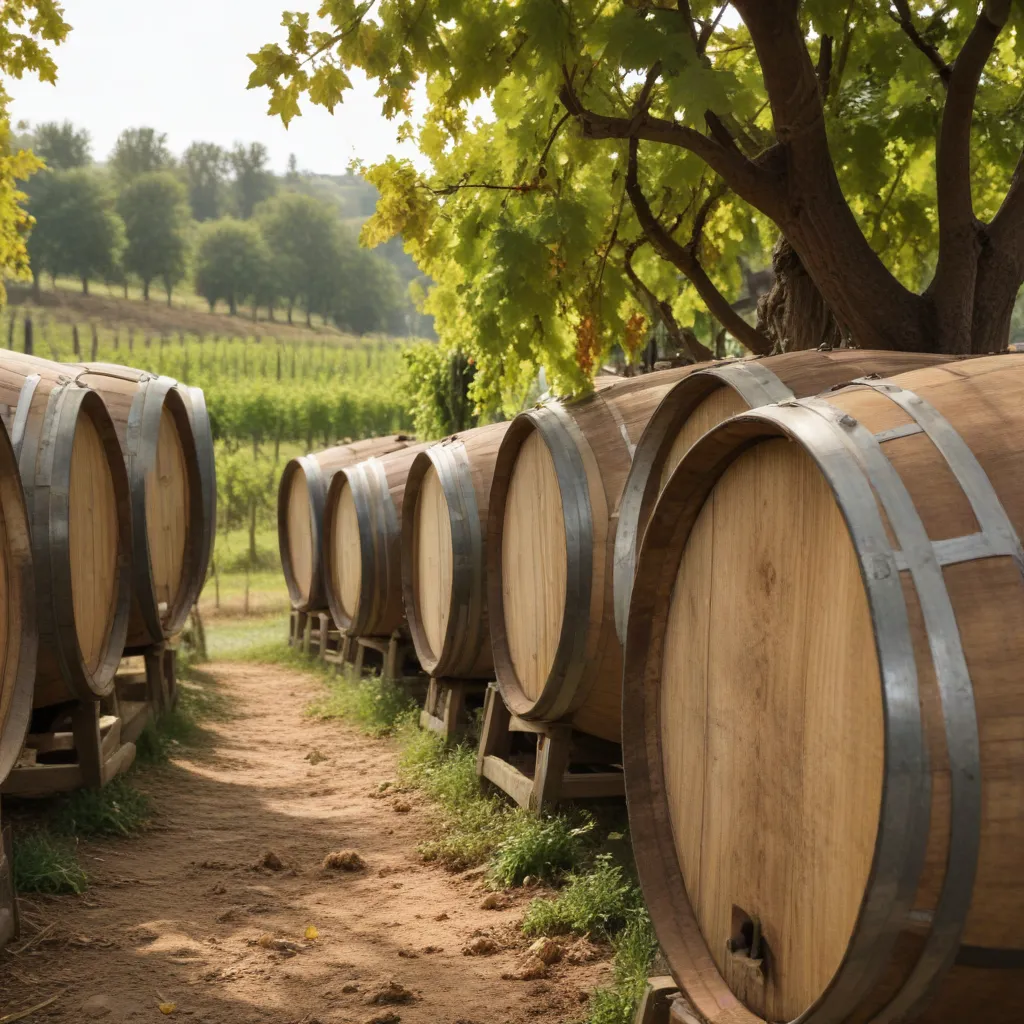
Sulfites—chemical compounds containing sulfur dioxide (SO2)—have been an integral part of the winemaking process for centuries. These unassuming additives play a crucial role in preserving wine quality, yet they are often misunderstood and the subject of ongoing debate. As a hospitality and wine expert writing for the Wine Garden Inn, I’m here to shed light on the purpose of sulfites in winemaking and clear up any misconceptions.
What Are Sulfites in Wine?
Sulfites are present in all types of wine, occurring naturally as a byproduct of fermentation when yeasts convert grape juice into alcohol. However, winemakers often choose to supplement the natural sulfites by adding more during key stages of the winemaking process. This strategic use of sulfur dioxide serves several important functions.
The sulfite composition in wine can range from as little as 5 milligrams per liter (mg/L) to as much as 200 mg/L, with the average dry red wine containing around 50 mg/L. This variance reflects the varying needs of different wine styles. Sweet wines, for instance, tend to have higher sulfite levels (upwards of 350 mg/L) to counteract their increased susceptibility to oxidation and bacterial growth due to their sugar content.
In contrast, natural wines and those made using traditional skin-contact methods often have lower sulfite levels, as the grape skins and stems provide natural antioxidants that help preserve the wine. Even so, it’s important to note that all wines contain some level of naturally occurring sulfites, regardless of winemaking practices.
The History of Sulfites in Winemaking
The use of sulfur dioxide in winemaking dates back to ancient times. Roman vintners discovered that burning sulfur candles inside empty wine vessels could effectively prevent spoilage and oxidation, a practice known as “sulfuring.” This ancient technique laid the foundation for the modern use of sulfites in the industry.
As winemaking evolved over the centuries, the strategic addition of sulfites became increasingly widespread, particularly in the early 20th century. In the United States, the use of sulfites in food and beverages has been regulated by the FDA since the 1970s, with a requirement for wines containing more than 10 parts per million (ppm) to display a “Contains Sulfites” label. This transparency has contributed to the ongoing conversation surrounding the role of sulfites in wine.
Today, the wine industry continues to explore new approaches to preserving wine quality, including the use of alternative preservatives and advanced technologies. However, sulfites remain an essential tool in the winemaker’s arsenal, despite the ongoing debate around their use.
The Purpose of Sulfites in Winemaking
So, why are sulfites so crucial in the production of fine wine? They serve two primary functions: as antimicrobial agents and antioxidants.
Antimicrobial Properties: Sulfur dioxide acts as a powerful antimicrobial, effectively inhibiting the growth of undesirable bacteria and wild yeasts that could compromise the wine’s integrity. This is particularly important in the prevention of spoilage and the maintenance of a wine’s intended flavor profile.
Antioxidant Function: Sulfites also play a vital role in protecting wines from oxidation, which can result in undesirable changes in color, aroma, and taste. By scavenging oxygen and slowing the oxidative processes, sulfites help preserve the delicate flavors and aromas that are the hallmark of fine wine.
Beyond these fundamental functions, sulfites can also aid in the flavor and aroma preservation of wines, particularly during the aging process. By mitigating oxidation and controlling microbial activity, they allow the wine to develop its full range of complex, nuanced characteristics.
The Sulfite Debate
As with many aspects of winemaking, the use of sulfites is a topic of ongoing discussion and debate. Proponents argue that sulfites are essential for maintaining wine quality and consistency, while critics contend that they should be avoided in favor of more natural preservation methods.
Arguments for Sulfite Use:
Winemakers who advocate for the use of sulfites emphasize their crucial role in preventing spoilage, maintaining flavor and aroma profiles, and enabling the proper aging of wines. They argue that the controlled addition of sulfites is a necessary and well-established practice in the industry, one that has been refined over centuries of winemaking experience.
Arguments Against Sulfite Use:
Those who oppose the use of sulfites in wine often champion the production of natural wines, which eschew the addition of any synthetic preservatives. Proponents of this approach believe that wines should be allowed to express their true terroir and varietal character without the interference of added chemicals. They argue that with proper attention to vineyard management and winemaking techniques, wines can be produced without the need for sulfite additions.
Balancing Sulfite Levels
The ideal sulfite levels in wine are a delicate balance, as too little can leave the wine vulnerable to spoilage and oxidation, while too much can result in undesirable flavors and potential health concerns for sensitive individuals. Winemakers must carefully consider the specific needs of each wine style and vintage, adjusting sulfite additions accordingly.
As consumer demand for more natural and sustainable wine options continues to grow, the industry is also exploring innovative approaches to preserving wine quality without relying solely on sulfites. From alternative preservatives to advanced processing techniques, the future of winemaking may see a continued evolution in the role of these ubiquitous compounds.
Ultimately, the debate surrounding sulfites in wine is a complex one, with valid arguments on both sides. As a wine enthusiast, it’s essential to understand the purpose and effects of sulfites to make informed choices that align with your personal preferences and well-being. Whether you opt for sulfite-free wines or embrace the judicious use of these preservatives, the world of wine offers a diverse array of experiences to explore.
To learn more about the Wine Garden Inn’s commitment to sourcing and serving exceptional, estate-grown wines, I encourage you to visit www.winegardeninn.com. There, you’ll discover our passion for curating a wine selection that celebrates the art of winemaking and the importance of sustainable viticulture practices.
